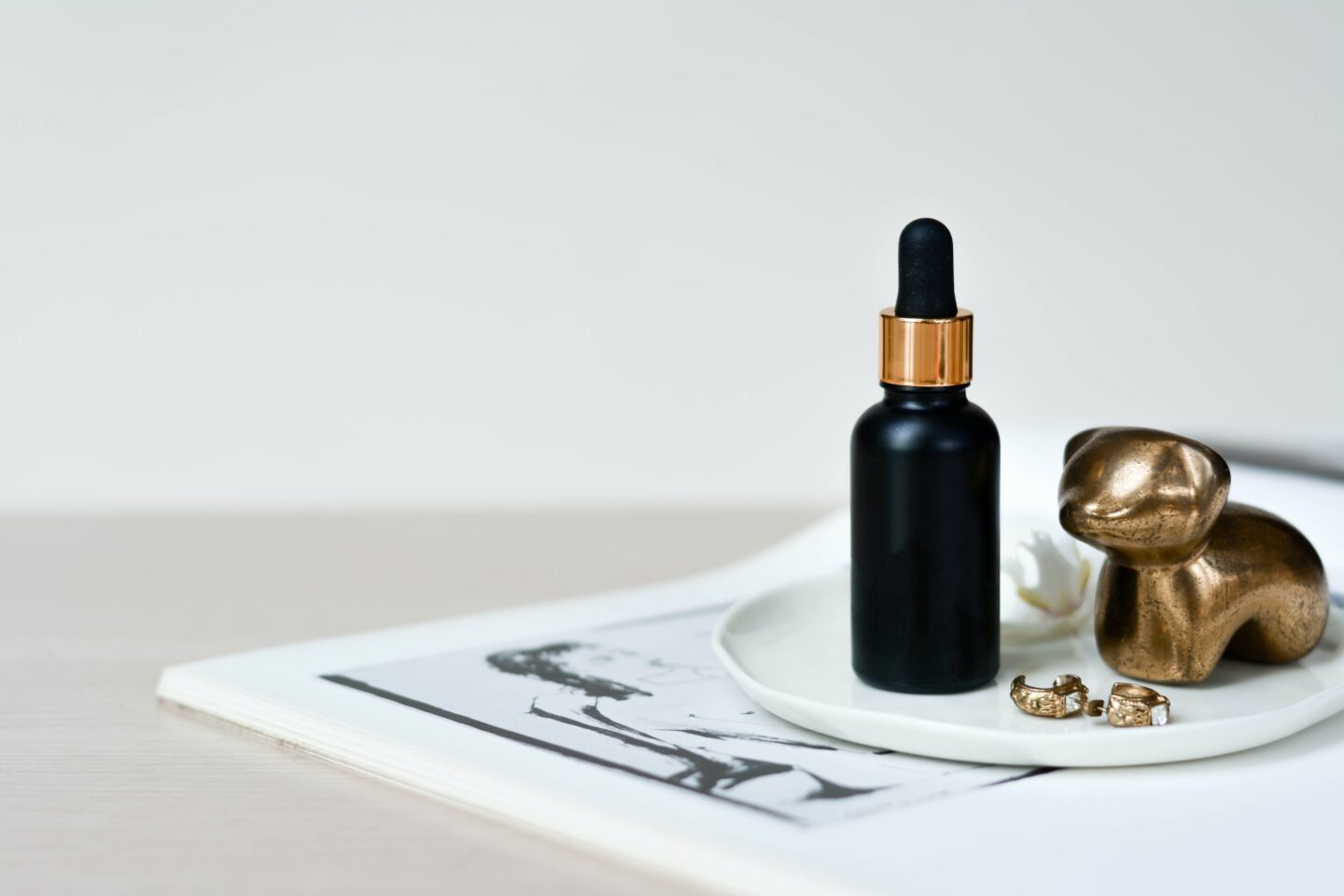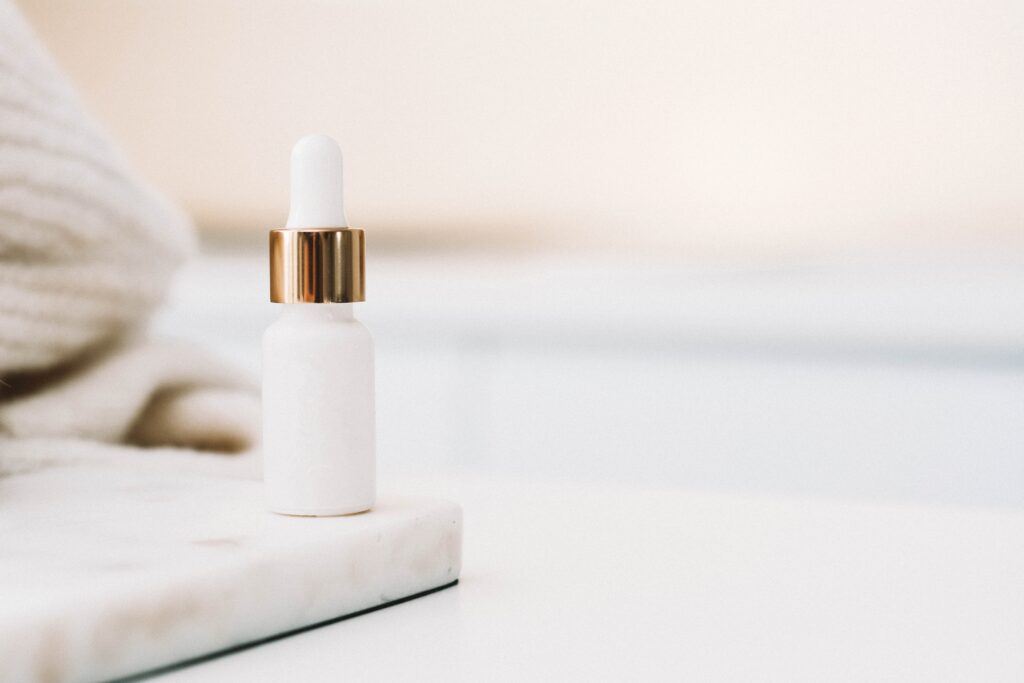
Are you trying your best to look after your skin but it just will not play ball? The Skin Savvy series provides a no-nonsense approach to understanding your skin and providing it with the ingredients it needs. Focusing specifically on sensitive and problematic skins, you will learn exactly what you need to do to care for your skin and get the complexion you have been striving for. We are kicking off the series today with a look at Natural versus Chemical skincare products.

Not all of us are blessed with ‘Normal’ skin. In fact, about 95% of people will be affected by acne at some point. So basically all of us!
Acne comes in varying forms from the most severe acne cysts, pustules, and scarring to milder forms including congested skin and big pores.
Some suffer more than others and like with many skin conditions, it can have a huge impact on your confidence and self-esteem.
In addition, we have sensitive skin types, Oily, Dehydrated, Congested, Dry, the list goes on.
With so many different skin types and a whole range of skin conditions, we need to get skin savvy and learn how to look after our skin and better still, improve our complexions, and bring back our glow.
When dealing with any form of skin condition we automatically assume that Natural and Organic skincare is the way to go. We are also led to believe that chemicals in skincare are a big no-no.
Natural or ‘Clean’ ingredients.
For those that do not know ‘Clean Beauty’ is a term used to describe a product or products that do not contain any ‘toxic’ ingredients that could cause harm to your health.
The reason this movement came about is due to the way that Cosmetic ingredients are monitored. In the UK around 1300 Cosmetic ingredients are banned, whereas in America the exact number seems to vary depending on who you ask but it is somewhere between only 11 and 30 ingredients.
Consumers wanted more to be done to protect not only their skin but their health too, and quite rightly so.
The Clean Beauty movement was all over the headlines and more and more of us started to question how safe the ingredients in our skincare actually were.
With ingredients lists containing so many words that we did not understand, we were questioning just what these chemicals were, and could they really be harmful to our health?
Throughout my years of research into natural, organic, or clean skincare the following benefits were listed:
- Environmentally friendly
- No harmful chemicals
- Proven efficiency
- More effective
- Only natural fragrance
- More sustainable
- No irritation
Therefore, natural skincare is much safer to use, if you were to believe the claims?
However, there is not a lot of regulations around what ‘Clean’ or ‘natural’ Beauty actually means, and therefore it seems anyone can slap a ‘Clean’ Beauty label on their product and watch it fly off the shelves with Glee, whilst comfortably lining their pockets.
In addition, there does not seem to be a lot of scientific evidence about natural skincare products in general, leaving us all in the dark.
Chemical Ingredients.
Chemical skincare ingredients have been taking a bit of a battering in the press. Mainly due to one particular ingredient called Parabens. Parabens are used as a preservative in a whole range of cosmetics and skincare products to help prolong the shelf life and delay the degrading process of our beauty products.
Some research has suggested that if used in high doses, Parabens can in fact penetrate our skin and have been linked to certain forms of cancers.
This is clearly something we must absolutely avoid.
However, just because a science-based skincare brand uses chemicals, it does not mean that they use Parabens or any other chemicals deemed as harmful.
In addition, they do not all have really long confusing ingredients lists. For example, my all-time favorite serum from SkinCeuticals (which is a science-based, chemical brand) only contains 7 ingredients and it is pretty easy to figure out what they are.
Some of my favorite skincare brands such as SkinCeuticals, Medik8, Neostrata, or Dr. Barbara Sturm are all science-based, Chemical skincare brands. If they are not ‘Clean’ does that mean that they are dirty?
Absolutely not!
They have spent years conducting scientific research on how effective an ingredient is, how safe it is. This research is carried out by doctors, professionals.
Do they have words on their ingredients list that I do not understand? Yes. However, just because I do not understand, does not mean that the ingredients are ‘bad’, ‘harmful’ or dirty.
So lets take a look at some Chemical skincare ingredients:
- Sunscreen/SPF
- Retinol
- AHA’s and BHA’s
- Topical treatments provided by our doctor
Are they dirty or harmful?
Who do we trust?
This is the real question.
It’s like the argument on how the world was created.
On the one side, we have the people that believe it happened due to God and nature. On the other side, we have the people that believe in a scientific approach and the big bang theory.
This is how I look at the ‘natural’ versus ‘chemical’ skincare argument.
There isn’t enough research or facts either way and therefore we just have to go with our own judgment.
What I do know is, there are so many misleading claims out there making it very difficult for us to make an informed purchase anymore.
However, what I do know is as follows:
- Natural skincare can absolutely cause irritation. Many natural products contain essential oils that are super irritating to anyone with sensitive skin.
- Not all chemicals are bad and many science-based brands conduct thorough, extensive research and trials to make sure that the skincare product they are providing is safe and effective.
- Regardless of whether a product is ‘natural’ or ‘chemical’, you know your own skin. Trust that. If a product works for you, use it. Don’t feel pressured into thinking you have to spend extortionate amounts on ‘clean’ beauty because the media tells you to.
Trust yourself.
Whilst we are led to believe that it is all the harsh ingredients in our skincare that is the root cause of the sensitive skin type, I am not sold on this idea.
There is so much more pollution, blue light, and other such external aggressors nowadays. Could these exposures be more likely to be causing the rise in problematic skin?
I know my skin. I understand what formulas it likes and what it does not like. I know what irritates it and what ingredients I need to avoid.
We should become more informed when it comes to our skincare and learn how to understand an ingredients label more, but not because of scare-mongering.
I spent a long time learning how to understand skincare ingredients. I became educated on what these ingredients were, and if I needed them. I spent years researching. What is each ingredient for? What does it do?
Whilst I am not suggesting that you also embark on a 5-year research project, I am suggesting that you learn to understand your own skin and trust that.
Try not to worry whether a product is natural, organic, clean, or science-based. Focus on what your own personal skin needs are. Do you have dry skin? Then you need hydrating ingredients. Congested skin or acne-prone skin? You need Non-Comedogenic ingredients. And so on.
In the Skin Savvy series, I will be looking at specific ingredients, giving you an insight into what they are. There will be specific brand reviews and a real focus on problematic skin, skin conditions, and specific concerns. I will guide you through the different options you have and the ingredients you should avoid.
My aim is to give you all the information that you need to make your own decisions. To become Skin Savvy.
Therefore giving you the opportunity to base your purchases on information rather than just another marketing campaign.
If you are interested in my own skincare routine you can take a look here.
In addition, the next post in the skin savvy series can be found here.
**Please sign up to my newsletter to receive an update on when a new post has been published. Have a lovely day!**